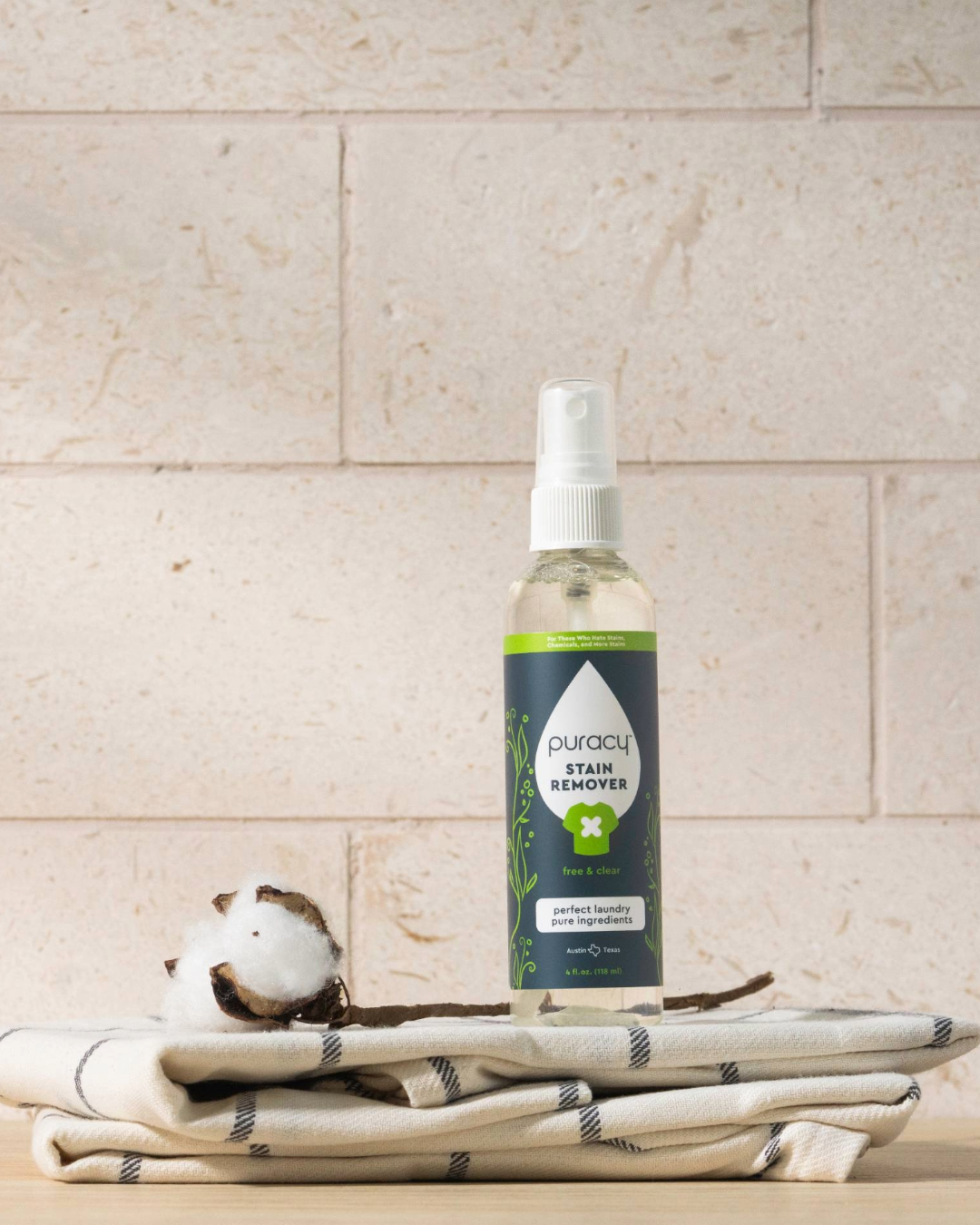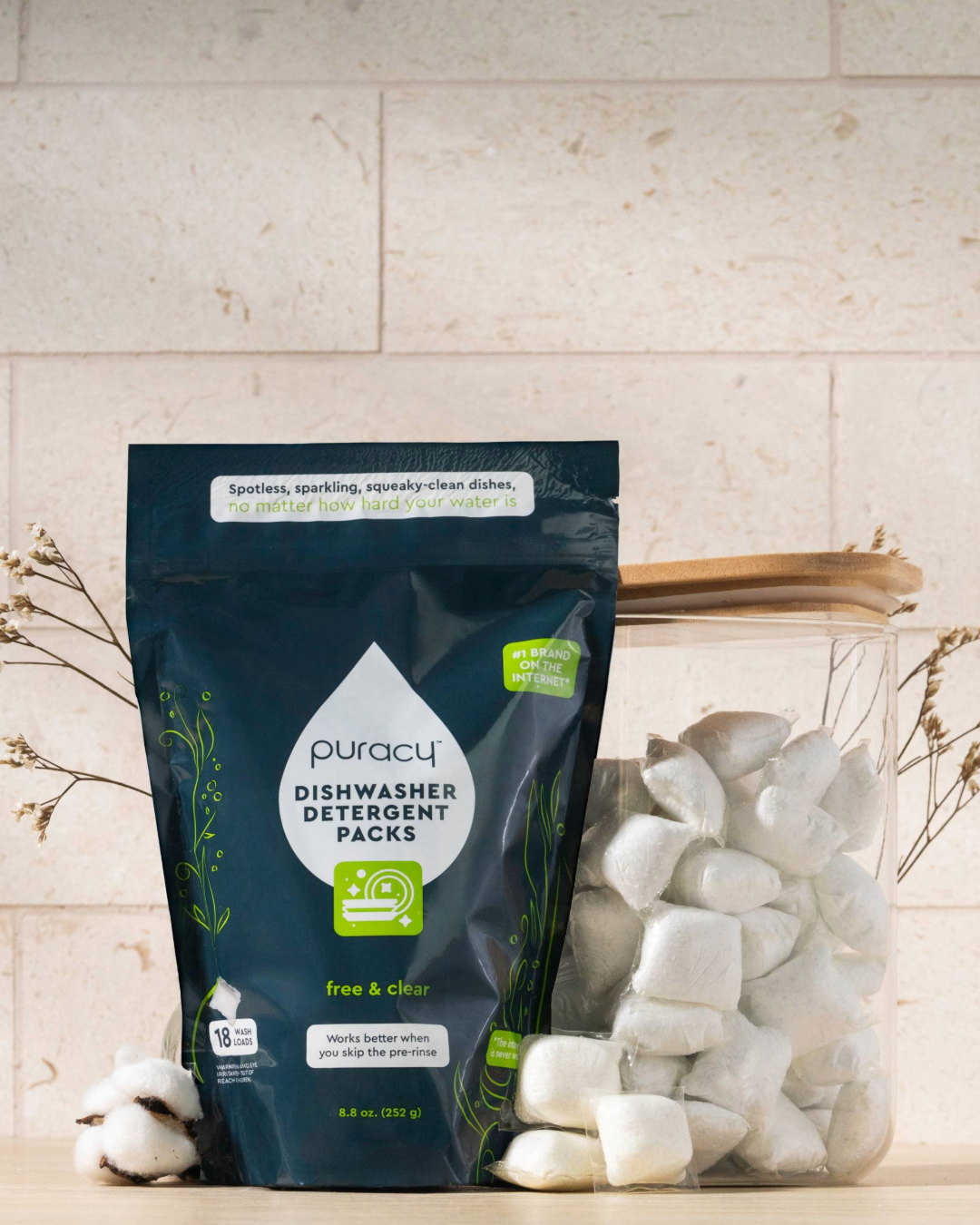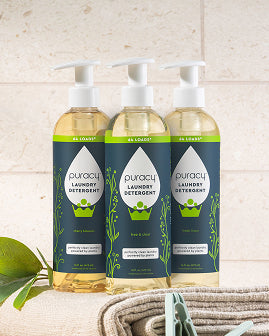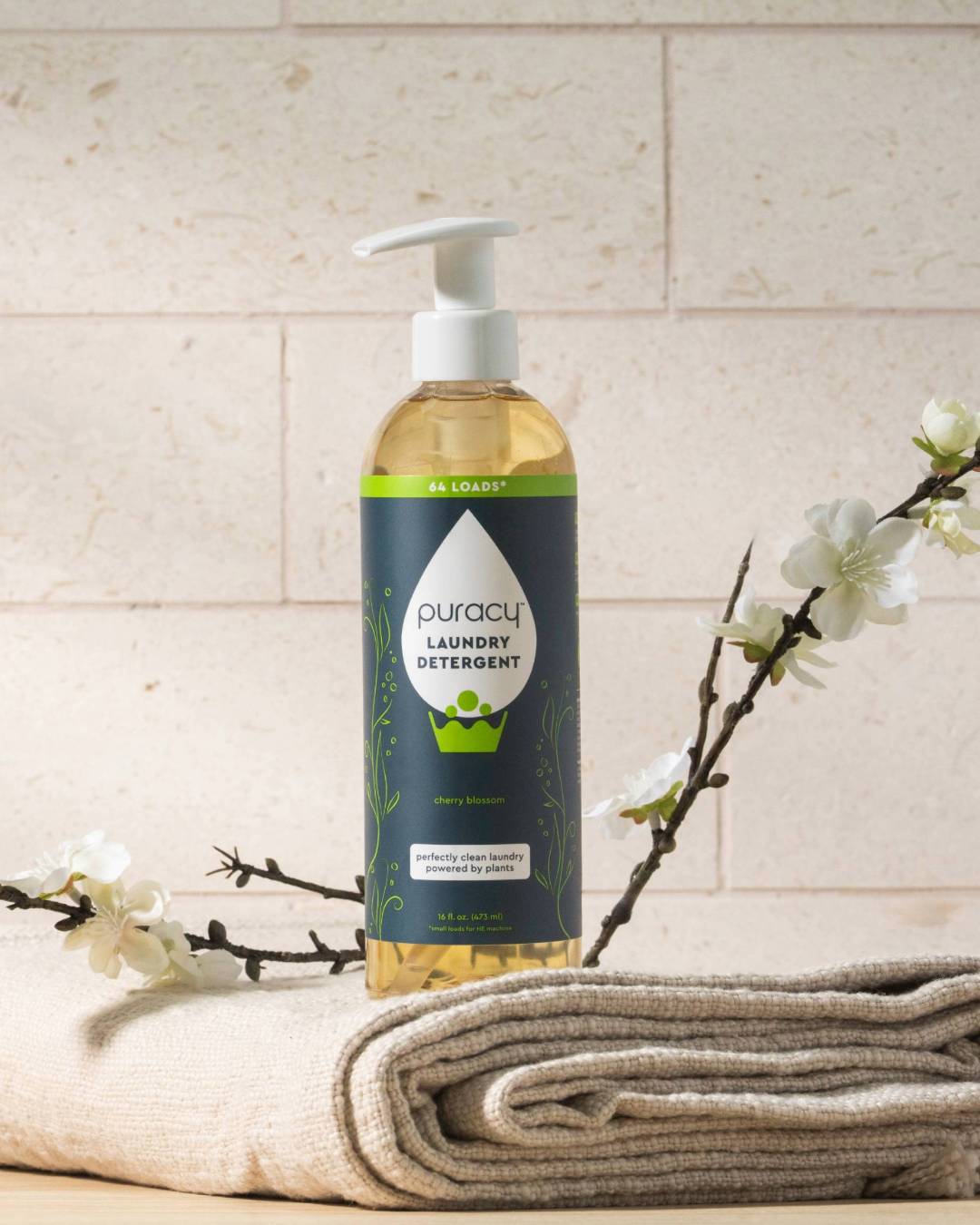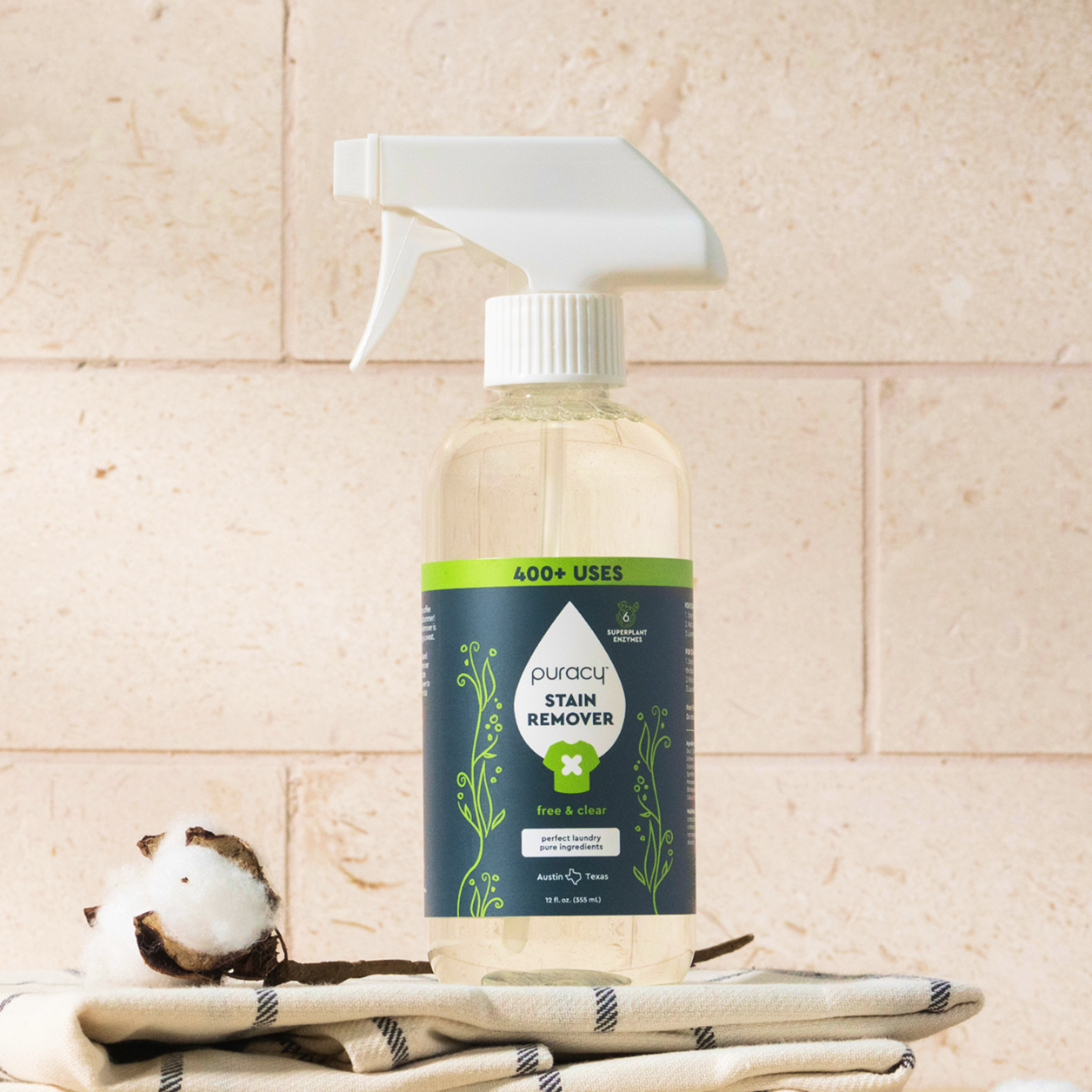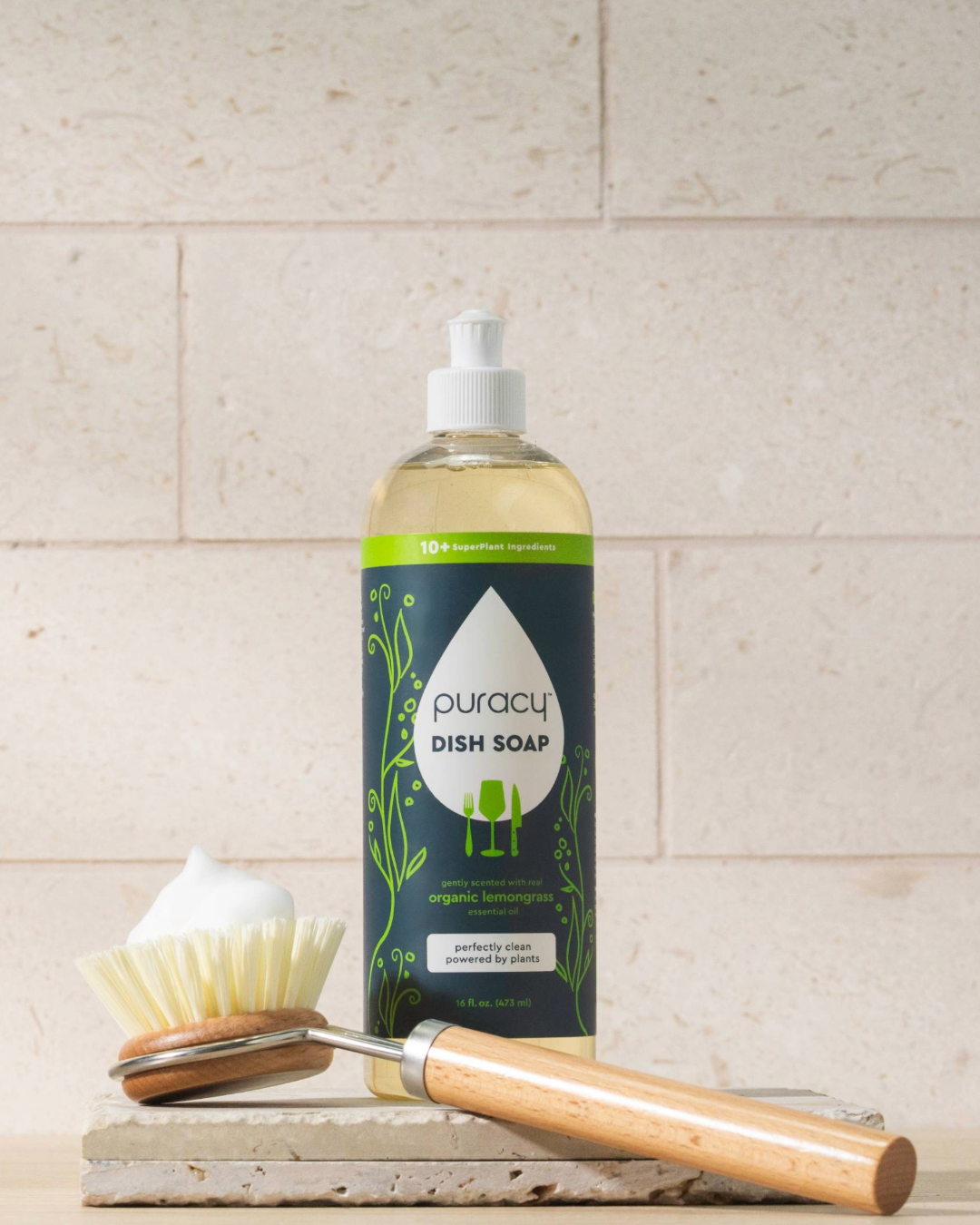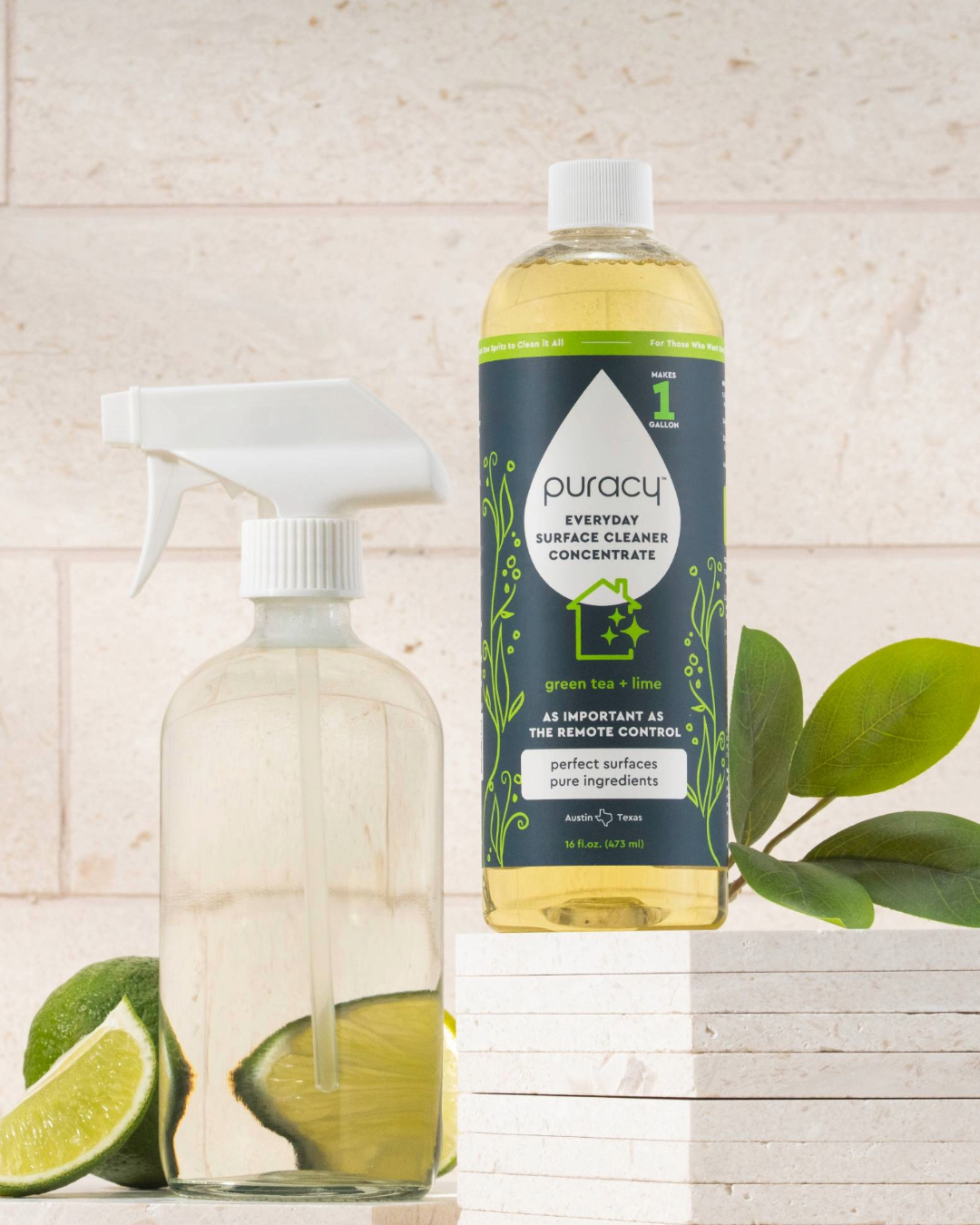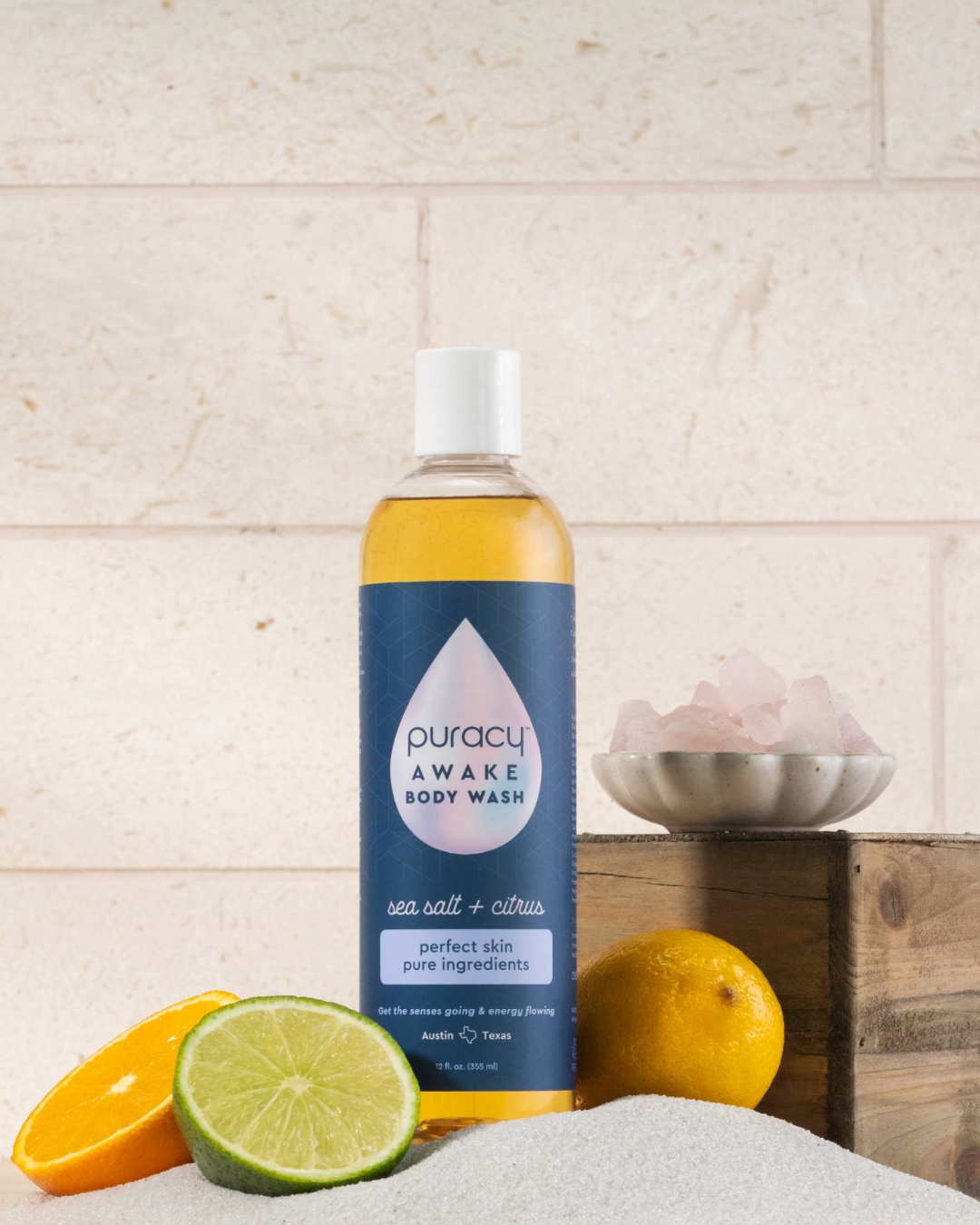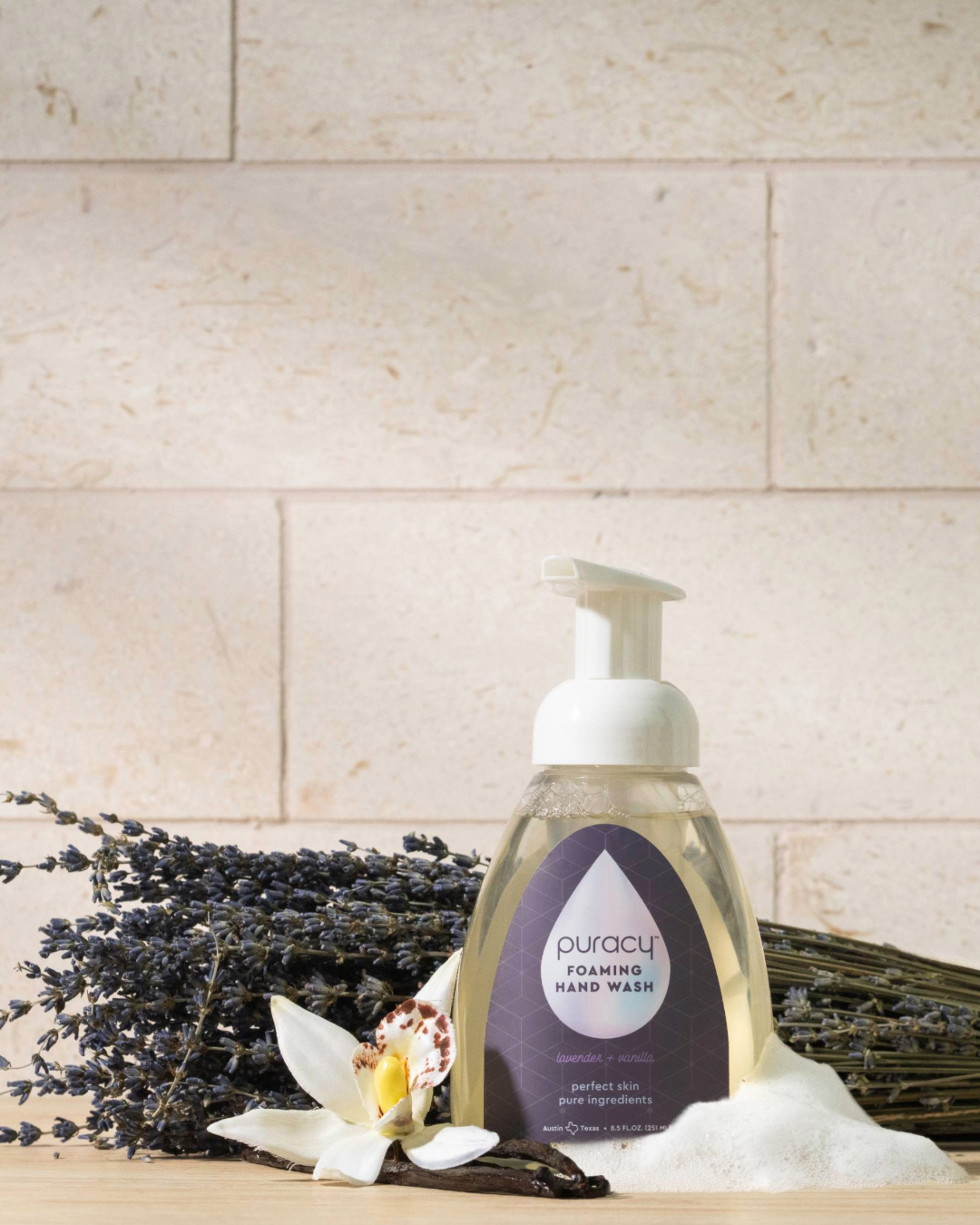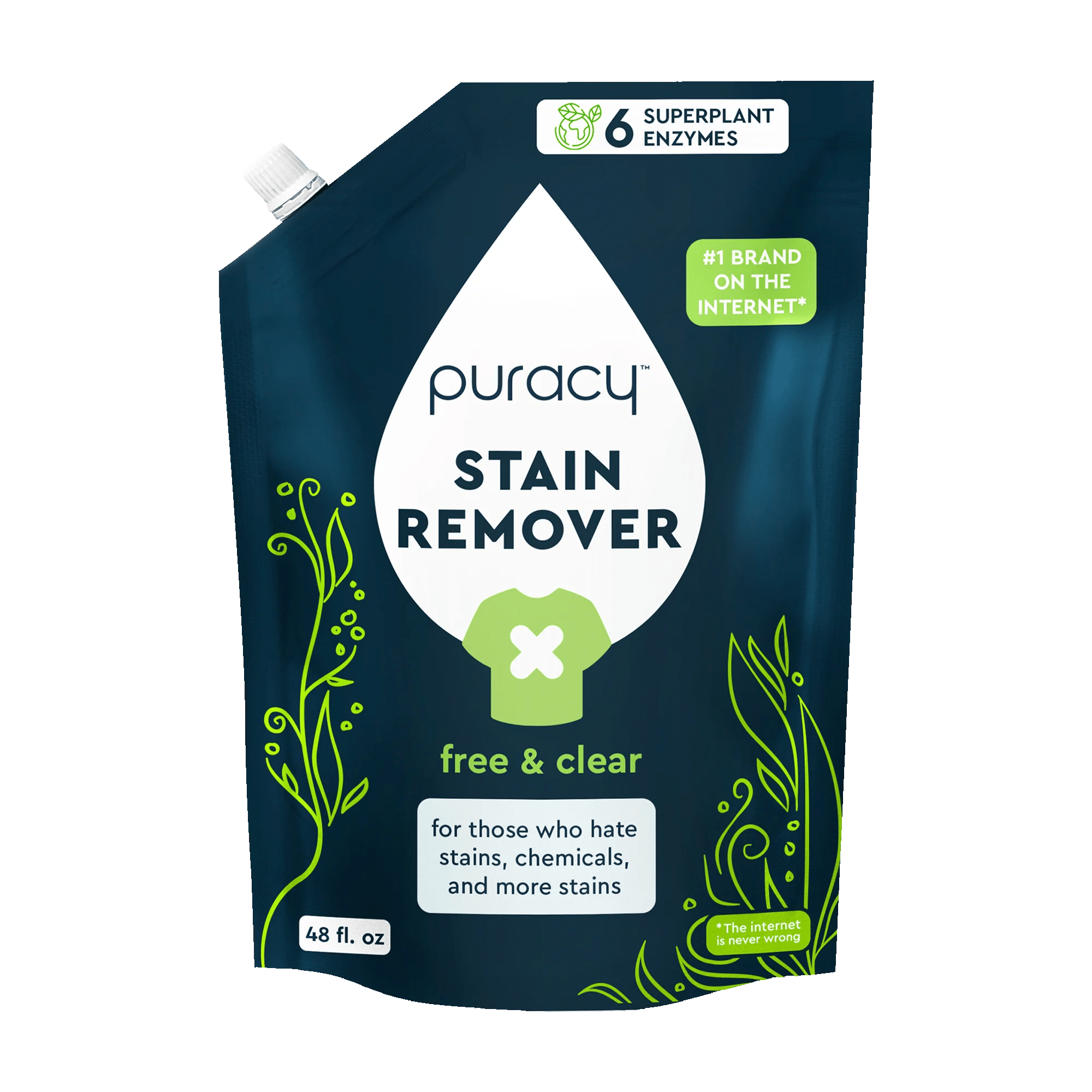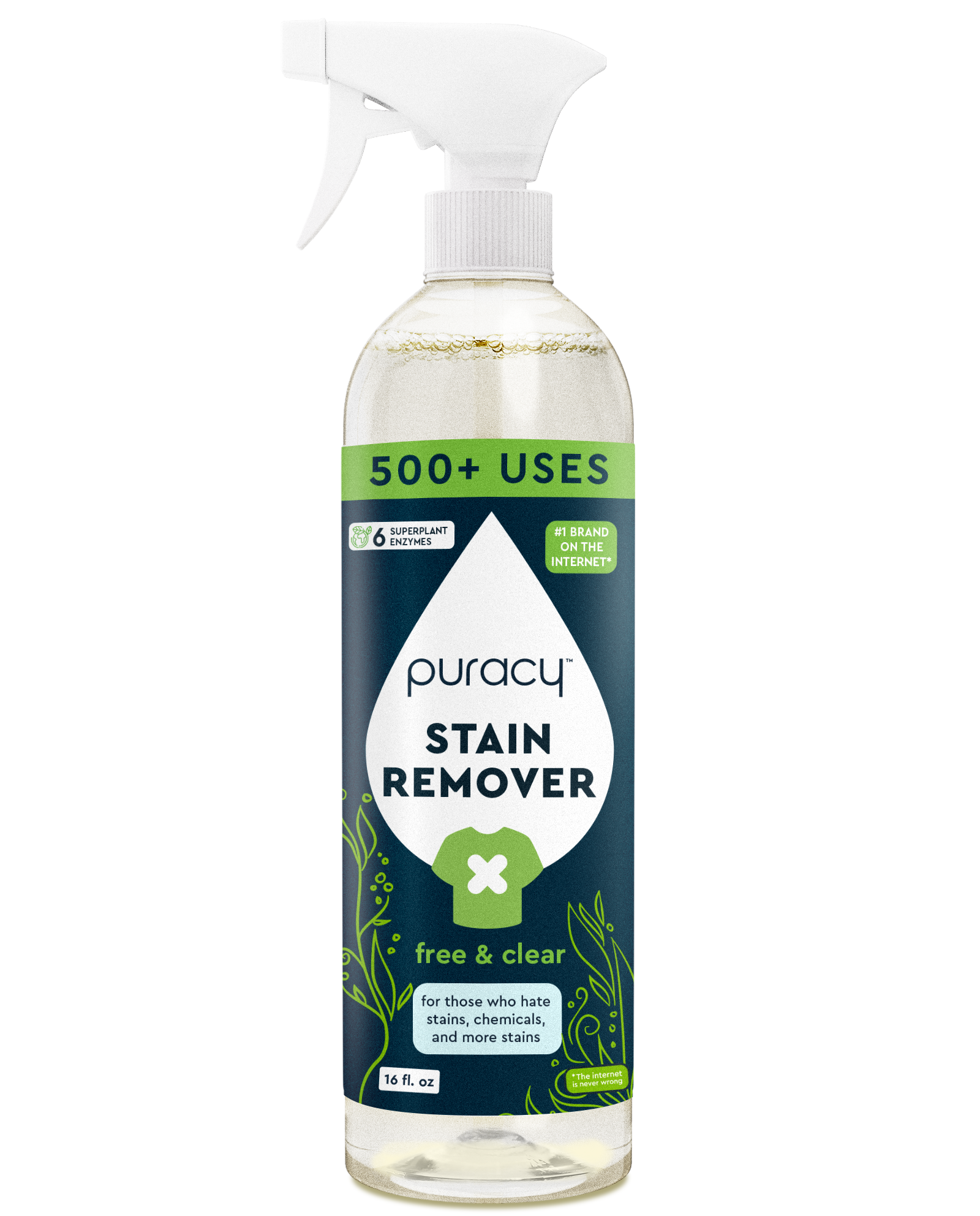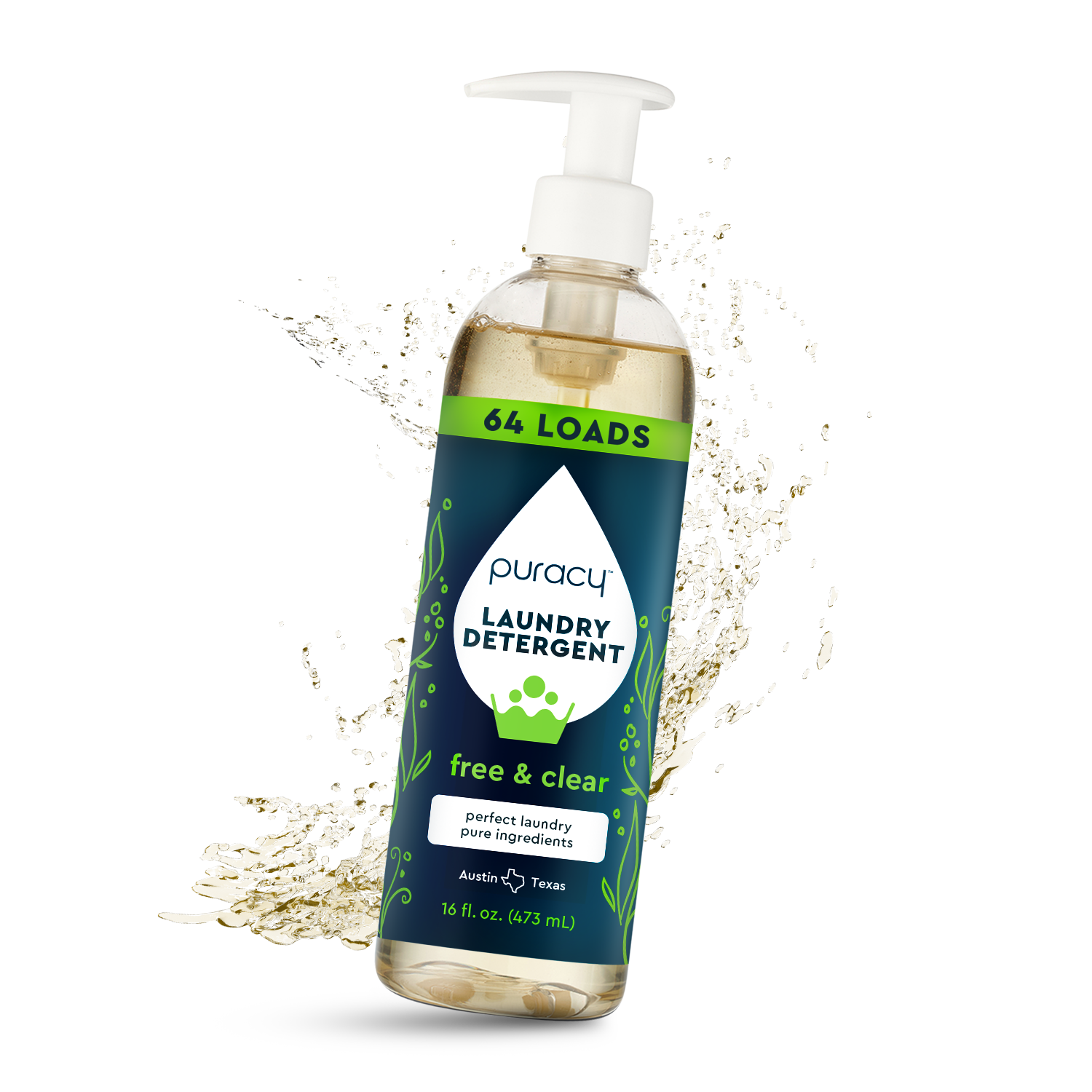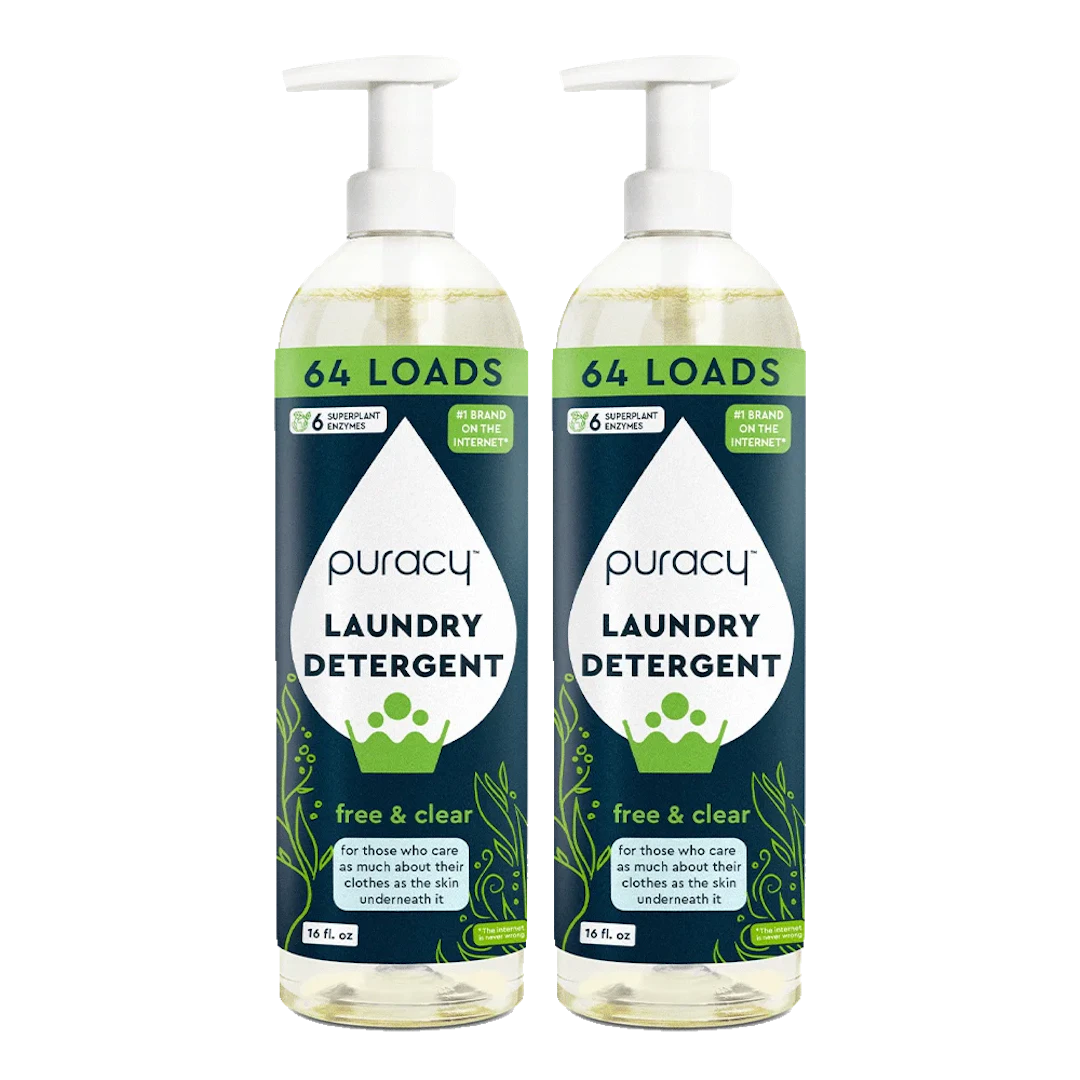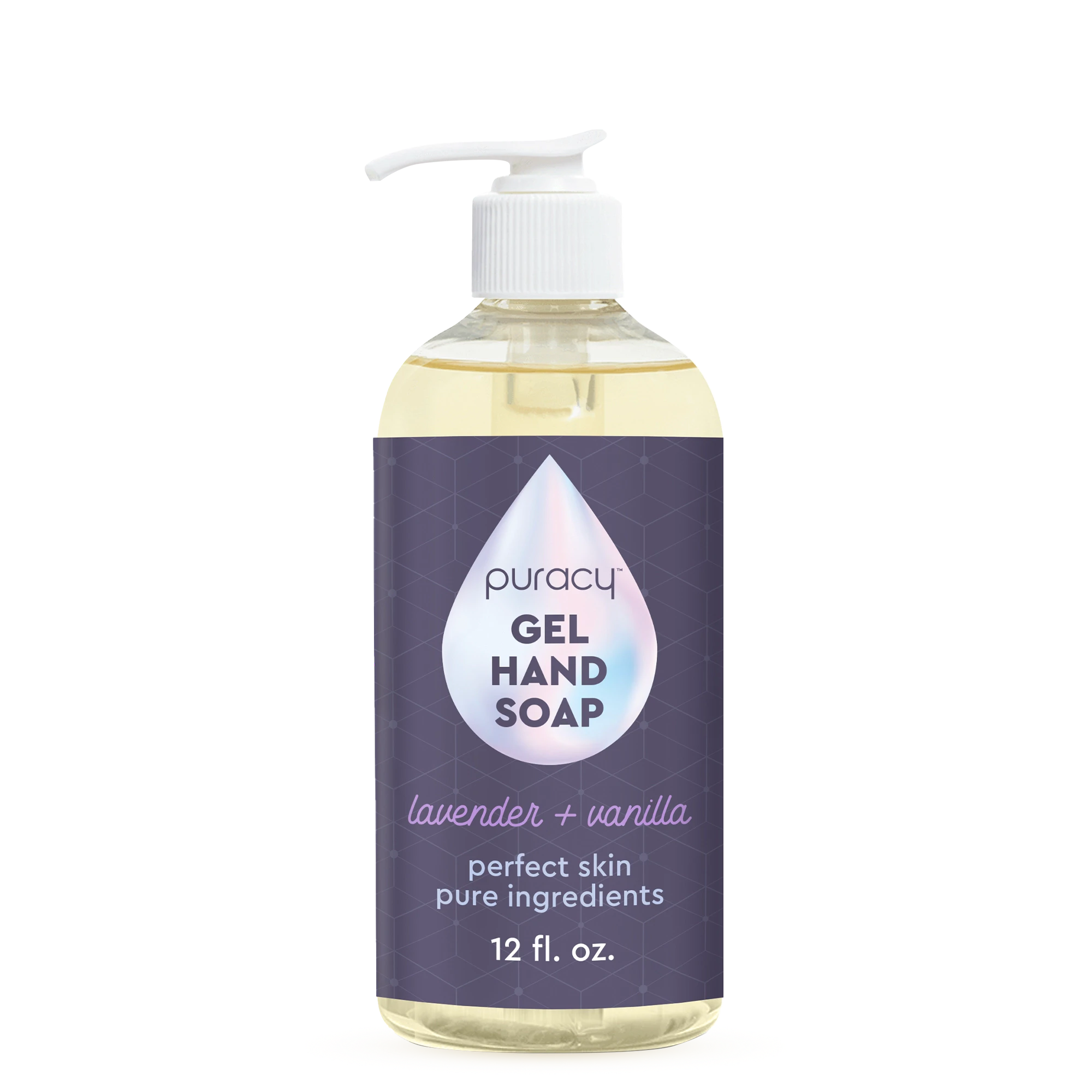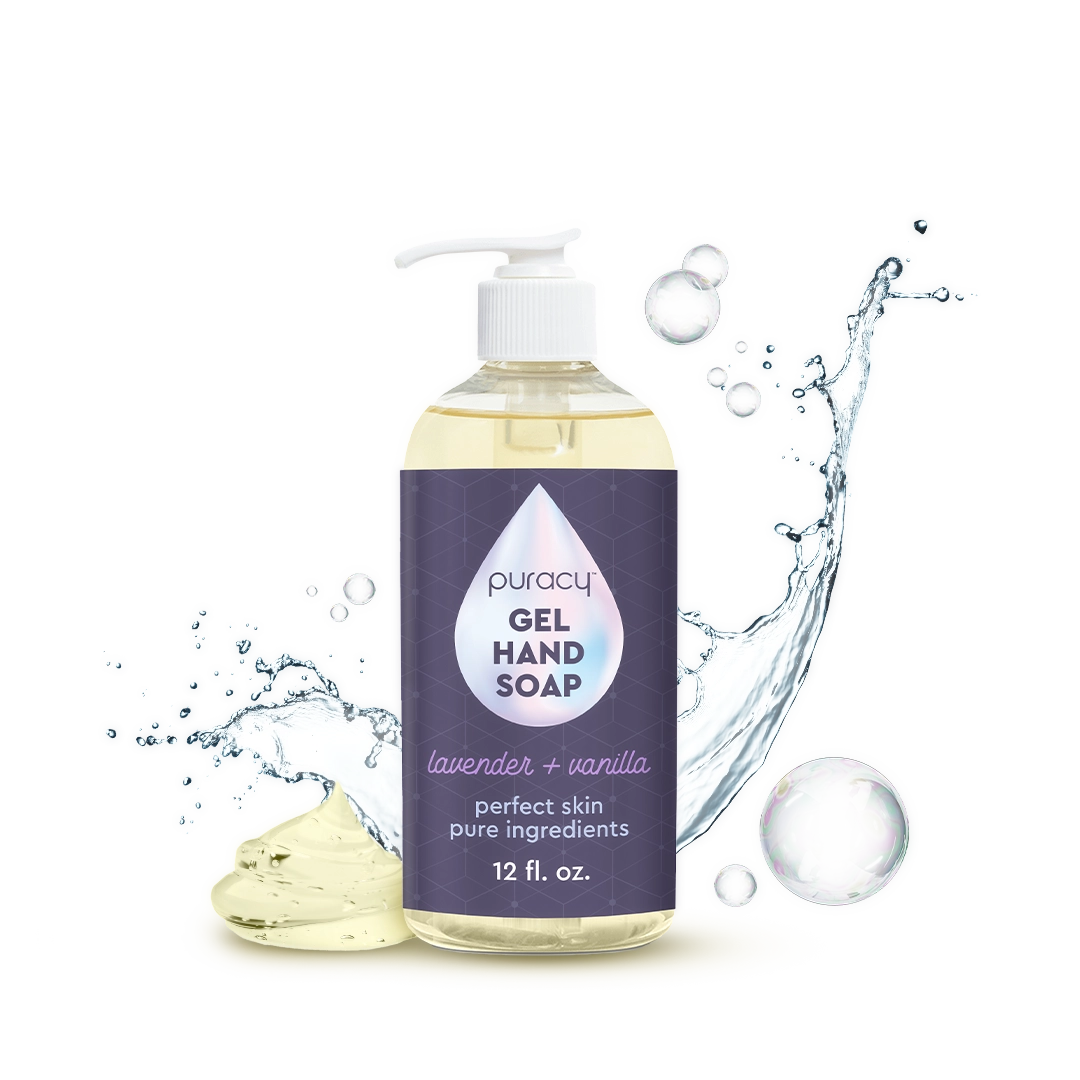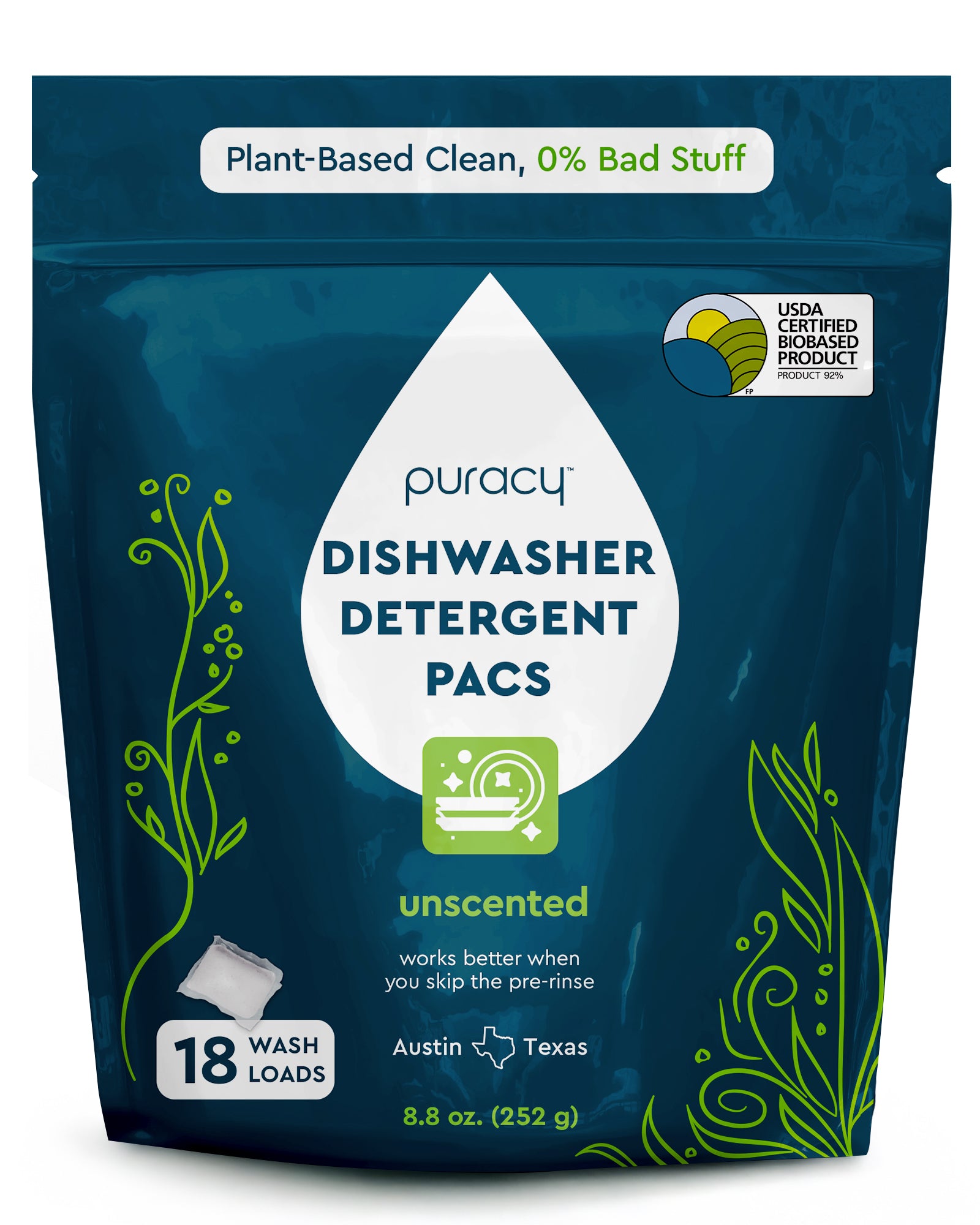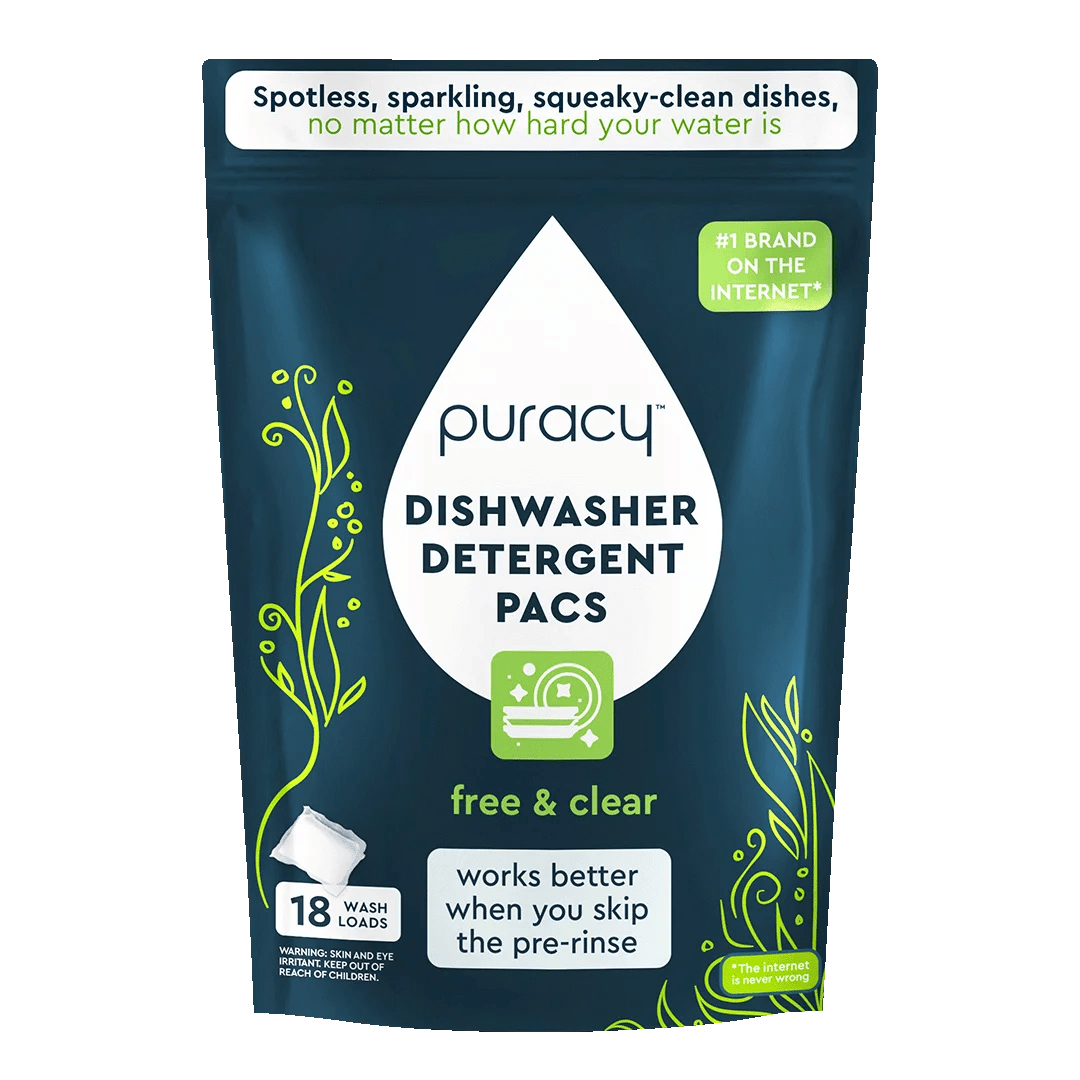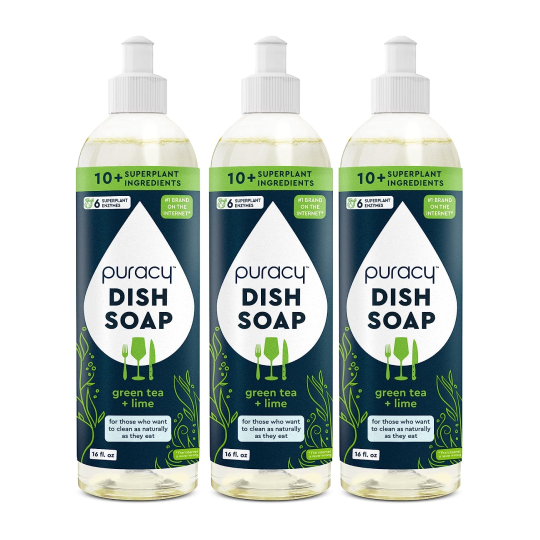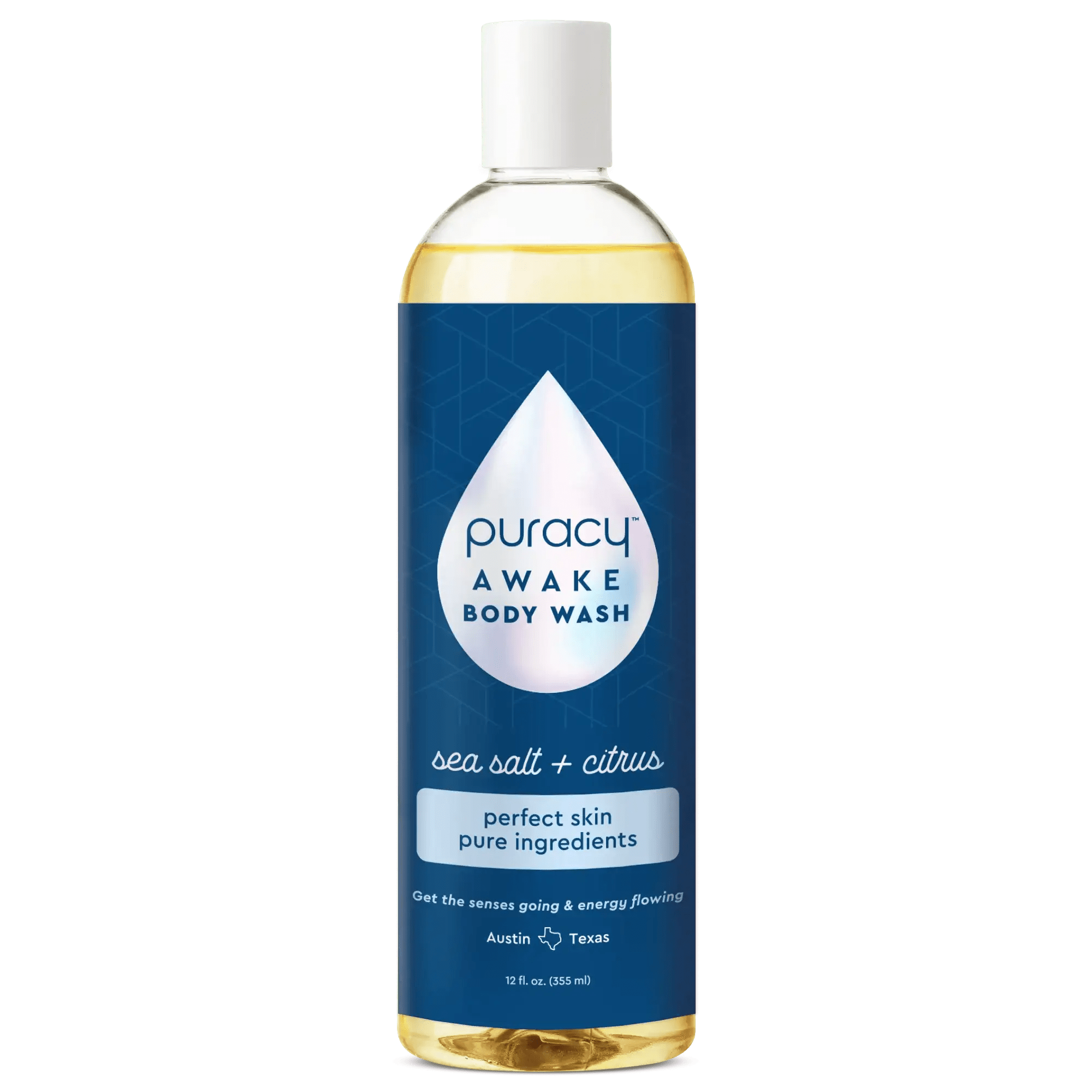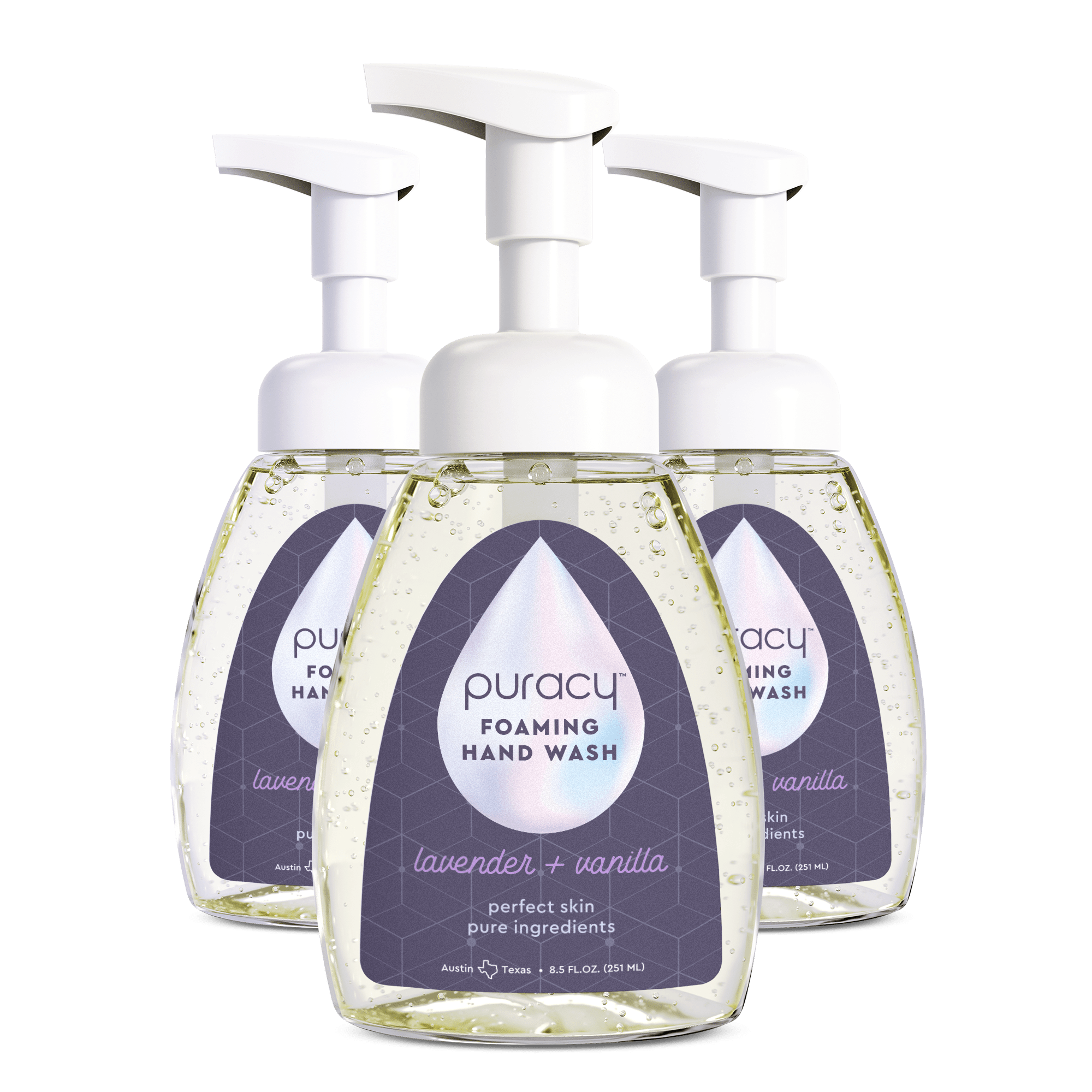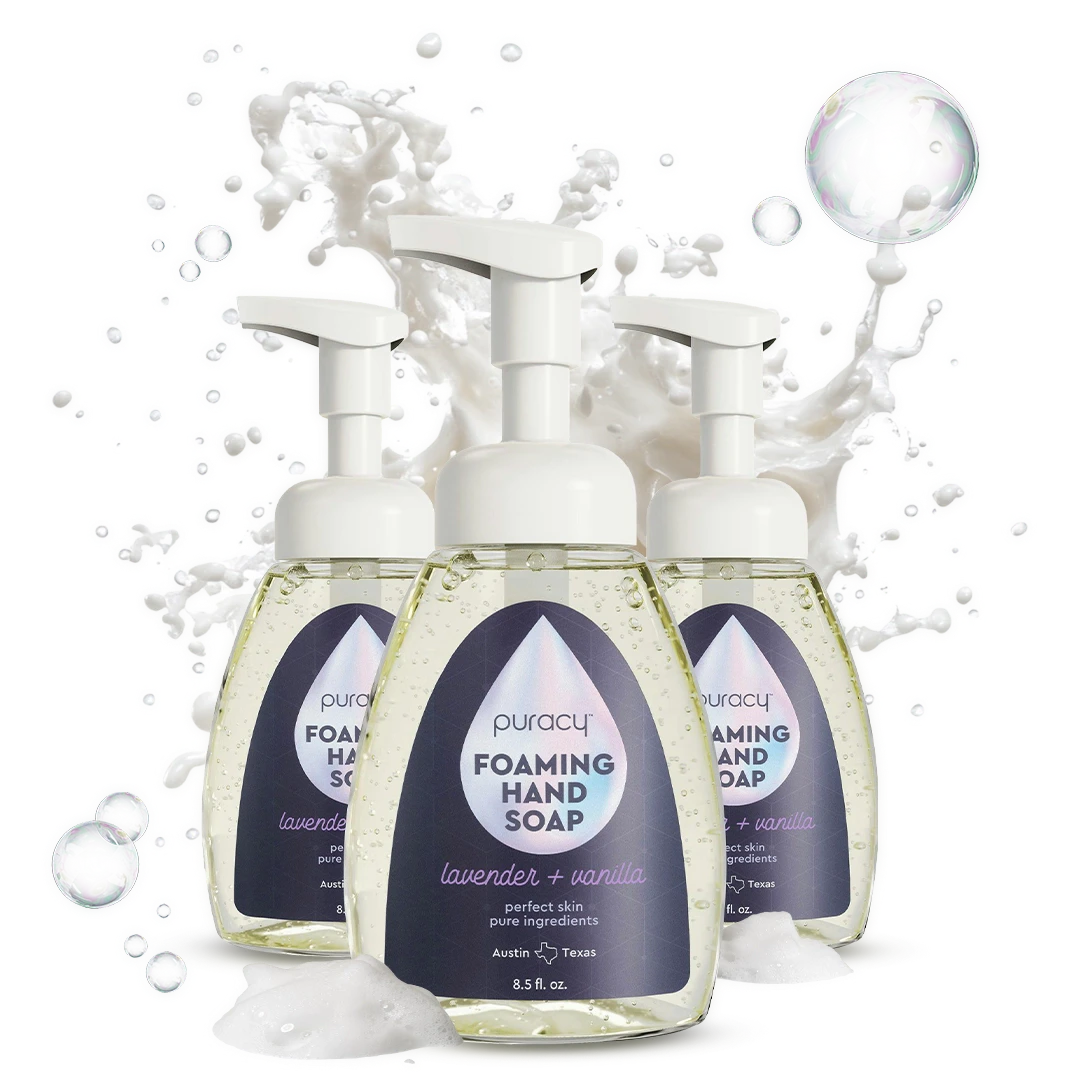
19 Natural Home Remedies for Eczema & Sensitive Skin
People with sensitive skin trigger a reaction from irritants like ingredients in cosmetics and toiletries and a low tolerance to cold or warm weather. Eczema is linked to skin sensitivity from environmental conditions and triggers that cause redness, itching, and dryness.
From stress to the foods we eat to the topical products we apply, nearly everything can affect sensitive skin. Anyone with eczema , contact dermatitis, or sensitive skin knows that these issues present intense physical and emotional challenges.
Here is a list of natural ingredients to treat eczema and sensitive skin, as well as how to use and apply them effectively.
-
Aloe Vera Gel

Aloe vera is recommended by the American academy of Dermatology for its soothing and moisturizing properties. Wash your skin, and then apply aloe vera gel directly onto the affected area. Gently massage it until it’s fully absorbed.
-
Apple Cider Vinegar

Made from fermented apples, apple cider vinegar can balance pH levels and soothe skin irritations. Dilute it with water and apply to the affected area. Leave it on for 10 to 15 minutes to manage eczema and sensitive skin.
-
Colloidal Oatmeal

Colloidal oatmeal is finely ground oats boiled an used as a topical treatment. Mix it with warm water to create a paste and apply it to the affected area. Leave it on for 15 to 20 minutes. Rinse the area with cool water and do this process two to three times a week.
-
Coconut Oil

As a natural moisturizer, this oil from the meat of coconuts can soothe dry and irritated skin. Warm a small amount of coconut oil and gently massage it on the affected area. Leave it on overnight. It can be used on a daily basis.
-
Honey

Honey is a natural moisturizer with antibacterial properties. To use, apply a thin layer of raw honey directly on the skin and leave it on for 20 to 30 minutes before rinsing it with warm water.
-
Tea Tree Oil

Derived from the leaves of the tea tree plant, this oil has antimicrobial and anti-inflammatory properties. Dilute tea tree oil with a carrier oil such as coconut or jojoba oil before applying it to the affected area using a cotton ball or clean fingers. Leave it on for 20-30 minutes, then rinse off with cool water.
-
Calendula Cream/Oil

Calendula is from marigold flowers. Apply a small amount of calendula cream or oil to the affected skin, gently massaging it until fully absorbed. Repeat this process two times a day for its soothing and anti-inflammatory properties.
-
Shea Butter

Shea butter is a natural fat extracted from the nuts of the shea tree and is renowned for its intense moisturizing properties. Take a small amount of shea butter and warm it up between your palms. Gently massage the butter onto the affected area until absorbed. Leave it on overnight for intense hydration and healing.
-
Sea Buckthorn

Sea buckthorn oil comes from the berries and seeds of the sea buckthorn plant. It is rich in vitamins, minerals, and antioxidants, and has been used to support skin health. Apply a few drops of sea buckthorn oil to the affected skin and gently massage it in using circular motions. Leave it on for at least 30 minutes before rinsing with lukewarm water.
-
Camellia Tea Oil

Camellia tea oil is known for being lightweight. Apply a few drops of this oil to the affected area and gently massage it in until absorbed. Leave it on overnight for deep moisturization and rejuvenation.
-
Hemp Seed Oil

Hemp seed oil is extracted from the seeds of the hemp plant and is rich in essential fatty acids that help moisturize and soothe the skin. Apply a few drops of hemp seed oil to the affected skin and gently massage it in using circular motions. Leave it on for 20-30 minutes before rinsing with warm water.
-
Jojoba Oil

Jojoba oil is known to closely resemble the skin’s natural oils. It is non-comedogenic and generally well-tolerated by most skin types. To use, take a few drops of jojoba oil and warm it up between your palms. Gently massage the oil onto the affected area until absorbed. Leave it on overnight for deep moisturization.
-
Raw Milk

Raw milk from cows contain natural fats, proteins, and lactic acid, which can provide moisture and exfoliation to the skin. Soak a clean cloth or cotton ball in raw milk, apply it to the affected skin, and leave it on for 10-15 minutes before rinsing with cool water. Use this remedy once a day. Individuals with dairy allergies should avoid using raw milk.
-
Amia

Amia or Indian gooseberry, is a fruit rich in vitamin C and antioxidants, which can support skin health. Mix amla powder with water to form a paste, apply it to the affected skin, and let it sit for 20-30 minutes. Rinse off with lukewarm water and gently pat the skin dry. Repeat this treatment two to three times a week.
-
Olive Oil

Olive oil is a rich source of fatty acids and antioxidants. Take a small amount of olive oil in your palm and warm it up by rubbing your hands together. Gently massage the oil onto the affected area until absorbed. Leave it on for at least 30 minutes before rinsing with lukewarm water.
-
Avocado Oil

Avocado oil can improve skin hydration and barrier function. Apply a few drops of avocado oil to the affected skin and gently massage it into the skin using circular motions. Leave it on for 20-30 minutes before rinsing with warm water.
-
Avocado Fruit

Mash a ripe avocado into a smooth paste, apply it to the affected area, and let it sit for 15-20 minutes. Rinse off with cool water and pat the skin dry. Repeat this treatment two to three times a week for its hydrating and soothing effects.
-
Linseed (Flaxseed)

Linseed is part of traditional herbal medicine practice and is available in many parts of the world. It has anti-inflammatory benefits, which makes it useful in the treatment of eczema and other skin inflammations. You can add flaxseed oil into your cooking or as vinaigrette for your salads.
-
Tea Bags

Tea bags, such as chamomile or green tea, contain compounds that possess soothing and anti-inflammatory properties, making them beneficial for eczema and sensitive skin. Steep tea bags in hot water for a few minutes, let them cool down, then place them directly on the affected skin. Leave them on for 10-15 minutes, then remove and rinse the skin with cool water.
How to Find Relief for Eczema & Sensitive Skin

We’ve worked with Dr. Julie Jackson, MD, FAAD to outline sensitive skin remedies that will help you take care of your skin — naturally — before flare-ups even occur.
1. Control Inflammation & Itch: Keep Reactions from Worsening
If you’re currently experiencing an adverse skin reaction, apply ice or cold compress to affected areas. This will help freeze itching in its tracks. A colloidal oatmeal bath is also known to help soothe different skin ailments – and it’s also extremely easy to make yourself.
2. Determine Your Triggers
If you notice that your skin reacts to specific products, try isolating potential culprits. Allergies and sensitivities can develop suddenly, so you might find yourself allergic to something that's never bothered you before.
Some of the most common skin irritants and triggers include:
- chemical solvents and detergents
- synthetic perfumes & fragrances
- pollen
- latex (e.g. disposable gloves, condoms)
- metals (especially nickel)
- plant extracts
- food sensitivities & allergies
3. Develop a Healthier Shower Routine
A healthy shower routine can make a massive difference in your life. First, turn down the dial and use lukewarm, not hot water.
-
Choose a pH-Balanced, Natural Body Wash for Eczema
Your showers products really make a difference, so reach for the best body wash for eczema and other sensitive skin types. Loaded with nourishing coconut cleansers and clinical-grade moisturizers, our hypoallergenic, pH-balanced formula is free of sulfates, cocamidopropyl betaine, formaldehyde, parabens, synthetic fragrances, and more.
-
Pay Attention to Your Scalp
The scalp often gets ignored, but it's an incredibly important part of your skin health. While your hair has a pH level of around 3.5, your scalp's is 5.5 – and it's extremely sensitive to changes. That's why Puracy formulated our Natural Shampoo (pH: 5.5) and Natural Conditioner (pH: 3.5-4.5) to gently cleanse, balance, and nourish your skin and hair.
Remember: Hair products trickle down your body whenever you rinse your hair! Make sure they're formulated with natural ingredients that don't contain irritants or allergens.
4. Limit Your Skin Care Products
One of the major reasons we've developed our unscented, 99.3% natural Face & Body Lotion (pH: 4.5-6.0) is to keep your skincare routine as simple as possible. After stepping out of the shower, pat your skin dry. and lock in moisture with a hypoallergenic, unscented body lotion. Feel free to use this product whenever you need added hydration.
We've intentionally included the best ingredients for eczema in our nourishing, non-greasy formula. That's why you'll never find silicones, parabens, dyes, perfumes, phthalates, petrochemicals, nut-based ingredients, or gluten in this product.
Pro Tip: Reducing your number of skin care products can go a long way towards helping people with sensitive skin determine whether certain products are causing negative reactions.
5. Use Natural Laundry Detergent for Sensitive Skin
Most laundry detergents contain artificial fragrances, harsh surfactants, and dyes that can do a number on sensitive skin. That’s why it’s important to find one that’s gentle but still hard-working.
Our Natural Laundry Detergent consistently lands on “best of” lists – and for good reason: We worked with PhD chemists and pediatricians to develop a 99.4% natural formula that lifts stains and odors without sacrificing your comfort.
6. Stay Hydrated
Water is one of the most straightforward sensitive skin remedies. In addition to a slew of health problems, even occasional dehydration can heighten sensitive skin issues (leaving dry and itchy patches behind).
How Much Water Should I Drink?
According to the Mayo Clinic, we should be consuming more than the “8 glasses per day” we’ve been told about:
- Men: 15.5 cups (3.7 liters)
- Women: 11.5 cups (2.7 liters)
Pro Tip: If you live in a hot climate or exercise/sweat regularly, you’ll need to drink more than that!
7. Stop Scratching!
Keeping your fingernails and toenails short can limit potential damage done by itching. If you’re dealing with an eczema flare-up, try keeping your hands busy with activities like filling out an adult coloring book or squeezing a stress ball. Wearing gloves and socks at night can also keep you from scratching these areas while you’re sleeping.
8. Wear Natural Fabrics
Your wardrobe can have a serious impact on skin health. Avoid scratchy fabrics like wool (unless it's pure cashmere) and synthetic materials like nylon, rayon, and polyester. Opt for looser cuts in pure cotton, silk, and fine-grade linens. Though these higher-quality fabrics may require a small investment, they're often a wise choice for individuals with sensitive skin.
9. Avoid Synthetic Fragrances
Synthetic fragrances are often chemical blends simply listed as "fragrance” that aren’t regulated by the FDA. It's often impossible to know precisely what's used in these types of products, and perfumes can cause serious side effects in certain individuals. If you suspect an allergy to perfumes or artificial fragrances, it's best to avoid them entirely.
To delicately scent our products, Puracy uses plant-based essential oils (never perfumes or artificial fragrances).
10. Turn on a Humidifier
Eczema is often worse when the humidity drops (especially in the colder winter months). And though there is no definitive scientific link, many people report relief associated with using a humidifier. Benefits should, however, be weighed against the disadvantages: cost, portability, and the potential increase in levels of dust mites.
11. Get a Shower Filter
Dermatologists widely regard hard water as a possible trigger for atopic eczema outbreaks. If your house has hard water, consider purchasing and installing a whole home water softener system.
12. Combat Stress
Stress is a common instigator for skin conditions. Therefore, one of the best remedies for sensitive skin is to be proactive with healthy outlets like regular exercise, yoga, meditation, and even counseling.
13. You Are What You Eat
Certain nutritional deficiencies can lead to skin disease, so it’s important to eat a well-balanced diet that contains all of your macro and micronutrient requirements.
Recently, there’s been a scientific focus on the relationship between skin diseases like psoriasis and the standard Western diet. Food in the US tends to be more calorically-dense, nutrient-poor, and often consists of highly-processed foods (which contain preservatives and chemical contaminants from fertilizers).
Though no single diet or food choice can be touted as a "cure for sensitive skin", it’s thought that a well-balanced diet of fresh, non-processed foods helps to support healthier skin function.
14. Consider Medical Testing
Ask your dermatologist about patch testing, which can help pinpoint contact allergens.
In rare cases, chronic itchy skin is a symptom of greater problems like iron deficiency, thyroid issues, and certain diseases. If the scratching is persistent and lasts longer than 6 weeks, you should absolutely consider seeking medical attention.
15. Choose Eczema Safe Hand Soap
Not enough attention is paid to hand eczema, even though this is an incredibly common location for itchy, dry patches to occur. During a time when frequent handwashing is the norm, you need the right hand soap for sensitive skin.
Our 98.6% Natural Foaming Hand Soap is a gentle, effective cleanser sourced from plants, minerals, and water. No triclosan, no sulfates, no residue, and no drying ingredients. Your hands will feel clean yet deeply hydrated.
Nourish Your Skin with Puracy's Entire Product Line

